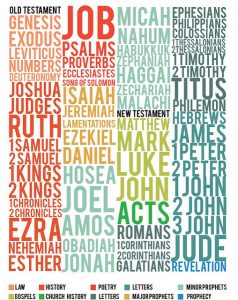
Earlier this month Yonat Shimron’s Religion News Service article “Is the Old Testament Dying?” captured my attention.
Put differently:
- Is the First Testament losing importance for those who follow the Way of Jesus?
- Do Christians have far greater biblical literacy in the Christian Scriptures than in the Hebrew Scriptures?
Less & Less?
Shimron’s article answers the initial and repackaged questions affirmatively based on a new book by Brent Strawn titled The Old Testament Is Dying: A Diagnosis and Recommended Treatment (2017).
Strawn is Professor of Old Testament and Director of the Doctor of Ministry Program at the Candler School of Theology at Emory University. To reach this conclusion Strawn considered several troubling trends
- Only 21% of sermons published in best of collections were based on Old Testament lessons
- The most commonly used lectionary omits seven books of the Old Testament and severely underrepresents 13 others
- Contemporary worship songs do little to educate parishioners on core scriptural knowledge
My Experience
As someone who teaches world religions to students who are not majoring in religion, I have had the opportunity to observe the religious literacy of hundreds of students who self-identify as Christian. Overall as they enter my course, their biblical literacy is higher for the Christian Scriptures than it is for the Hebrew Scriptures.
In far less formal ways, I have observed a similar phenomenon serving in parish ministry. Interestingly, the divide is not as obvious among these cohorts nor was the gap present across all congregations or all age groups. Not surprisingly, the gap was less apparent among my oldest parishioners.
Finally, I asked myself if my own preaching and teaching prioritized the New Testament over the Old Testament? The simple answer here is “it’s complicated.” An informal review of my teaching suggests my lessons on the New Testament are about twice the number of those focused on the Old Testament. A somewhat more formal review of my preaching during my last two roles as Interim Pastor found a far wider gap. In one experience 33 of 36 passages utilized were from the New Testament (92%) while in the other experience 39 of 43 passages were from the New Testament (91%).
So What?
Strawn believes we have a problem, and should take intentional steps to address it. I agree that those who follow the Way of Jesus benefit greatly from possessing a basic knowledge of both Testaments. I would, however, need to read his book fully to fully appreciate or to attempt to ably evaluate his proposals for overcoming the current deficit.
- What percentage of the sermon readings in your congregation would you estimate are from the Old Testament/Hebrew Scriptures?
- Do you know the Old Testament/Hebrew Scriptures and the New Testament/Christian Scriptures equally well? If not, which do you know better? Do you know one only somewhat better than the other or much better?
- Do you think that a lack of biblical literacy is a big problem in American Christianity today? If so, do you think this issue is true for both Testataments equally or that more people have lower levels of biblical literacy in the Old Testament/Hebrew Scriptures?
For more on this topic consider reading some of my related posts:
- Americans Like but Don’t Read the Bible (2017)
- Declining Biblical Literacy (2012)
- Reading the Whole Bible (2010)